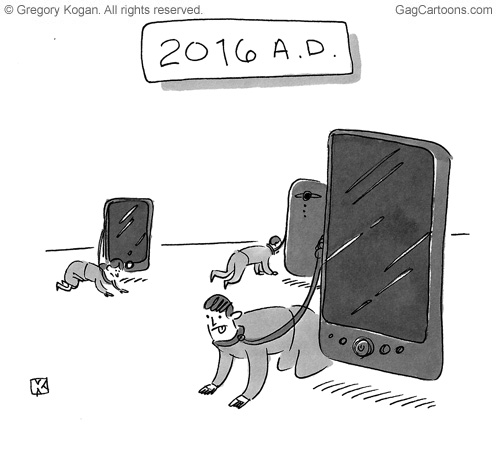Conor Murphy | Deputy Opinion editor
A smartphone is a powerful tool. A tool that can be used to enhance peoples lives, a tool that is being used to develop nations long wallowing in poverty and poor infrastructure, a tool that is used by millions in the developing world to democratise information faster than the printing press and a tool that is being used by billions to play Angry Birds. Compared with these benefits, who really cares if some people just use it to escape reality, to escape human contact and to escape having to have a face to face conversation with you?
When people talk about smartphones and the pros and cons, inevitably they are talking about mobile internet. This thing that seems like a fringe benefit and major nuisance to us has revolutionised certain parts of the world. There are parts of Nigeria that have a mobile web usage as high as Ireland, because that is the only web that exists. They use it to barter, to decide whether to sell their stock this week or next in countries where that decision can save their families lives.They are skipping the infrastructural need for landlines, fixed broadband and real world banks and helping the continent of Africa have the fastest economic growth rate on the planet.
Now the change mightn’t seem so revolutionary here, and it’s not. However the benefits are still many and the negatives small. The closest thing to an actual problem smartphones seem to exhibit is the constant need to share without consideration. Mark Twain said in the 19th century that ‘a lie can travel halfway around the world while the truth is putting on its shoes’. In the nineteenth century that was a nice metaphor, in the 21st it is the literal truth. Last week, a hacked AP Twitter account tweeted that the White House was bombed and it was retweeted thousands of times before being taken down. But one thing the oversharing brings with it, a lie might travel quicker, but the truth will win out in the end. And indeed where years ago misinformation might have lead to panic about a White House bombing, it was obvious within minutes the tweet was a fake and any panic subsided quickly.
The main problem people in the developed world seem to take issue with is the trend towards mass communication, with smartphones as the driving force. The complainants will talk about people ignoring real human contact for the sake of five minutes of Twittering. If two people ignore each other to browse memes on Facebook that says more about peoples ability to have an engaging conversation than it does about phones. Our ability to consume information quickly has exploded and our human ability to entertain that hunger can’t keep up all the time but simple social evolution will weed that out eventually. Again this is an issue people have with mobile internet, not really the devices using it.
Even in the developed world, some benefits are rather clear to see. In the last year the effect of constant social disapproval has improved the quality of updates on social media. People have often prophesied the demise of the written word yet it is now through the written word that people communicate half the time. That’s millions more people than ever before learning about taking care of what they say, in what they share, in comedic timing and in political correctness and incorrectness. Even if this is in the hope of improving of some shallow ratio of likes and retweets, ultimately it has a positive effect.
The technological world is also changing to overcome this need to be buried in the smartphone all the time. As we push on and improve smartphones their shape becomes more malleable, and are quickly becoming a digital layer, augmenting our life in a much less distracting way. Technological creations like smart watches or Google Glass will help that – they’re job will be getting us to the ‘real’ social interaction all the quicker and then staying the hell away.
Ultimately, smartphones and the need to be constantly connected bring very few original problems, they just exacerbates a few problems that were already there. Problems that are there won’t be cured by a luddite desire to rekindle the romance of yesteryear, they will be overcome by people choosing the technological innovation that truly improves their lives rather than hinders it.
Smartphones are a tool and like all tools, some people will use them for toolish things, but the good in them outweighs the bad a hundred times over and real smartphones have barely had their fifth birthday. Can you imagine what we can achieve when they’ve had their tenth, twentieth or thirtieth? I can’t even begin to imagine, and I definitely can’t wait.







